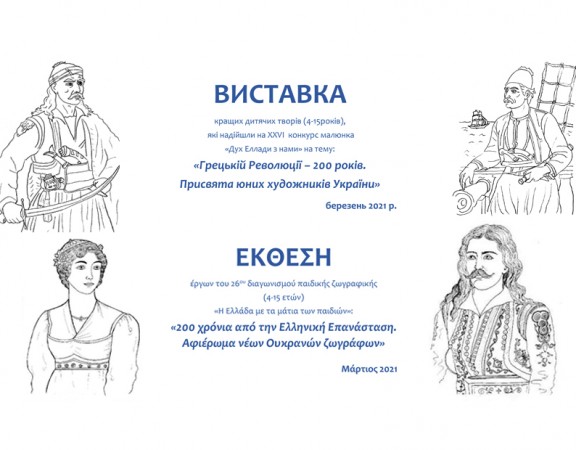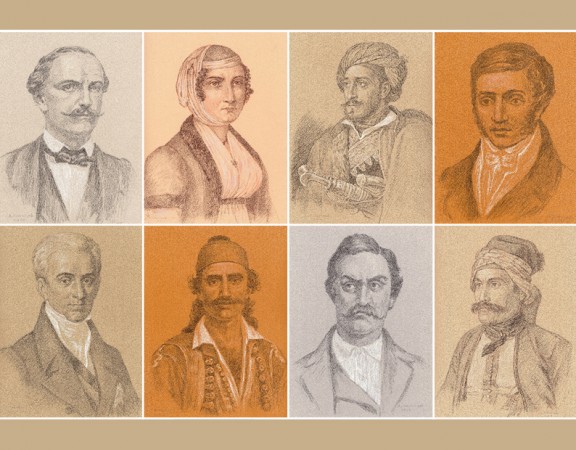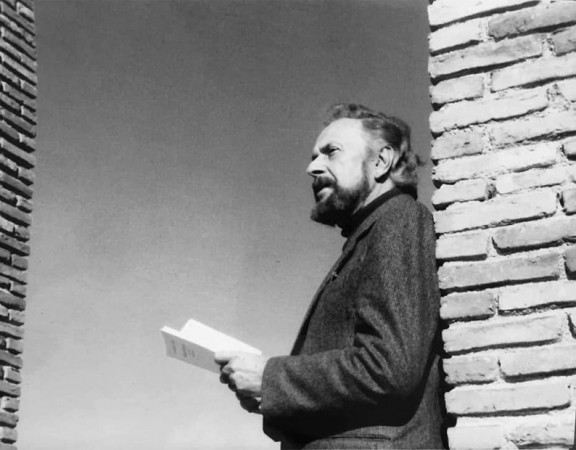The flatbed exhibition will open at the Branch of the HFC September 1, 2016 at 16:00
Gregorios Xenopoulos was a Greek writer, dramatist, journalist, literary and theater critic, whose works represent one of the most interesting and outstanding phenomena in the history of Modern Greek culture.
He was born on 9 December 1867 in Constantinople to the family of a merchant. He spent his childhood and youth on the Ionian island of Zakynthos, where his ancestors had lived. In 1883 he enrolled in the University of Athens where he studied Physics and Mathematics and took some classes in Philosophy. He also studied foreign languages, read many books of Greek and foreign authors. He had begun writing short stories at the age of sixteen, and since 1890 he devoted himself entirely to literature.
His life was passing rather routinely. He moved permanently to Athens and cooperated with many newspapers and magazines, in which he published his literary works. In 1896 he became the chief editor of The Education of the Children and made the magazine very popular. In 1927 he founded the magazine Nea Estia, whose director he was until 1934.
The only milestones in his career include the National Award in Literature (1922) and the elected membership in the Athenian Academy of Sciences (1931). Xenopoulos died in Athens on 14 January 1951.
Throughout 84 years of his life Xenopoulos wrote a number of stories, novels and plays. Just the quantity of his novels amounts to over 40.
Not all works of Xenopoulos’ prose and dramaturgy appear equivalent. They include hasty, superficial works indulging philistine tastes, especially romance novels written by the order of the bourgeois publishers and theatrical entrepreneurs, for Xenopoulos was perhaps the first Greek writer for whom writing was the sole source of income. One shall not forget, however, that Xenopoulos contributed a lot to the development of Modern Greek literature. He was a bearer of a great culture of artistic expression and narrative skills. In his best works, he unfolded new themes, touched upon topical issues, in a bright way presented life, manners and characters of people from his native Zakynthos or Athens striving to depict the truth of life and the ideas of humanism. In their language and content, many of his works represented a new trend in the literary life emerging under the title of “dimotikism”, that is establishing of the folk language, which concerned not only the kind of language but also, and most importantly, the new perception of artistic goals and the new content of art.
Xenopoulos paid much interest to progress and supported cultural initiatives aimed at the development of literature and theater as well as published critical articles and essays in newspapers and magazines. These characteristics determined the best works of Xenopoulos written by the great artists in the traditions of humanism and bringing fresh ideas into the Modern Greek literature and theater. These include “The Rebel” (short story), “The Brother’s Honor” (story), “The Rich and the Poor” (novel from the social trilogy), “Students” (lyrical comedy), “Temptation” and “The Plebeian” (plays).
The best features of Xenopoulos’ works are indeed related to the advanced trends of realistic trajectory in the literature of the late 19th – early 20th century. One of the merits of this trajectory lied in the introduction of the folk language into the literature instead of its archaic counterpart that had dominated in the 19th century. In this sense, Xenopoulos made the most important contribution. Giannis Psycharis, a renowned Greek man of letters and linguist, called Xenopoulos “the father of the Demotic (folk) Greek language in theater”. It was indeed Xenopoulos who showed the richness of the literary folk language in a wide spectrum of his various plays.
By studying Western European dramaturgy, he mastered it and developed his skills in the art of theater that secured the long-lasting performance of his plays in the Greek theaters and returned the Greek theater to its national beginnings. Some of Xenopoulos’ works (mainly, short stories and plays) are translated into Italian, French, German, Romanian and Russian languages.






